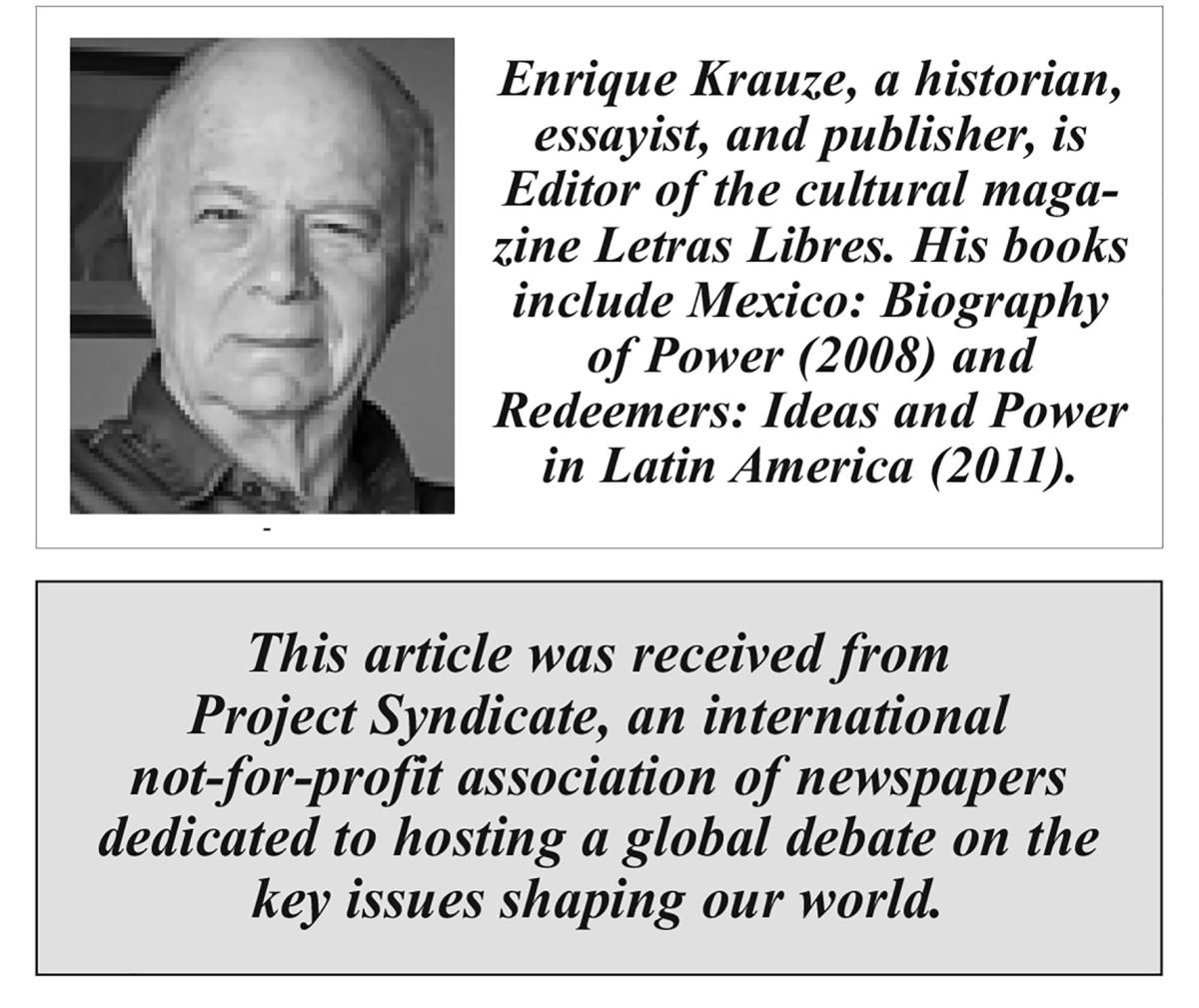MEXICO CITY – Mexico has just inaugurated a new president, Claudia Sheinbaum, the first woman to hold the post. But her term begins under the long shadow of her predecessor, and patron, Andrés Manuel López Obrador, whose influence is unlikely to wane anytime soon.
In June 2006, a month before Mexico’s national elections that year, I wrote an essay on the candidacy of López Obrador (or AMLO as he is commonly known) titled “El mesías tropical” (“The Tropical Messiah”). It was, above all, a psychological portrait of a man with a genuine calling to serve that was offset by an insatiable appetite for power.
I highlighted AMLO’s intemperate character, his complete disinterest in the outside world, his ignorance of economics and business, his contempt for the law, his ideological dogmatism, and his political authoritarianism. He had no ties with Mexico’s liberal democratic tradition, nor with its socialist one. He was a tyrannical, self-obsessed figure.
I ended the essay by pointing out the dangerous convergence of two of AMLO’s obsessions: equating himself (quite seriously) with Jesus Christ and flaunting the unbridled “tropical” nature of power in Tabasco, his home state in southeast Mexico. His eventual triumph seemed imminent to me, and so I warned: “Mexico will lose irretrievable years.”
AMLO lost that election and the next one, in 2012. But he won in 2018 and governed for six years, until September 30, leaving a destructive legacy – although many in Mexico might not see it that way.
In 2018, AMLO abandoned the Seguro Popular program, leaving roughly 20 million people without insurance coverage. He also cut resources to the Mexican Social Security Institute, as well as to 28 national health institutes and specialized hospitals, resulting in chronic medical shortages.
These austerity policies – as neoliberal as they come – resulted in 500,000 people forgoing necessary surgeries, 15 million unfilled prescriptions (five times more than under the previous government), and the suspension of some 97% of cancer care. The number of people without access to health services increased from 20.1 million in 2018 to 50.4 million in 2022. Moreover, during the course of AMLO’s presidency, more than six million children went unimmunized, owing to vaccine shortages. And his poor handling of the COVID-19 pandemic resulted in 224,000 deaths.
AMLO’s six-year term coincided with the most violent era in Mexico’s history, with nearly 200,000 homicides and record rates of femicide, rape, and domestic violence. On AMLO’s watch, organized-crime groups gained control of large swaths of territory (more than one-quarter of the country, according to some estimates), contributing to an increase in disappearances, extortion, drug and human trafficking, and cargo and oil theft.
AMLO also squandered the resources in more than 80 public funds and trusts, some of which were intended for disaster recovery, and presided over an increase in public debt totaling 6.6 trillion pesos ($336 billion) and a rise in Mexico’s deficit, from 2% to 5.96% of GDP. Annual GDP growth during López Obrador’s term averaged 1%, the lowest of the last five administrations. His infrastructure projects, which the army largely built, were more than 484 billion pesos over budget and were highly impractical: a little-used airport, a gasoline refinery that is not yet operational, and a train that devastated the jungles of the Yucatán Peninsula.
In addition to vesting the army with considerable power, AMLO dismantled democratic institutions and accountability mechanisms. His most recent target was Mexico’s judicial system. According to a law passed during his administration’s final days, thousands of judges – including on the Supreme Court – will be fired, and their replacements will be popularly elected. This reform will politicize the judiciary and, in turn, erode the separation of powers, jeopardizing two centuries of republican government. But perhaps AMLO’s most insidious legacy is the hatred and polarization he has aroused in Mexican society.
Despite all the damage that AMLO has caused, he remains as popular at the end of his term as at the beginning. One reason is the president’s power to shape the truth: in his daily televised briefings (mañaneras), AMLO pursued his agenda and slandered his critics under the guise of transparency. The silence and the self-censorship of major media outlets has abetted the state’s near-total capture of the information environment.
Another important factor in AMLO’s continued popularity is the distribution of money to tens of millions of households through the street-level “Servants of the Nation” network, which operates like Cuba’s Committees for the Defense of the Revolution. This voluntary servitude plagues more than half of Mexican voters.
But official propaganda cannot hide AMLO’s misdeeds forever, and cash transfers are not a sustainable solution to the problem of poverty – even less so when coupled with political obedience. Sooner or later, AMLO’s believers will wake up – painfully – to reality. Perhaps then they will understand what Cubans and Venezuelans know all too well: messianic leaders promise the kingdom of God on Earth, but the end result is always hunger and misery, oppression and exile.
While Sheinbaum’s inauguration is a milestone in itself – all the more so in Mexico, a sexist country with a history of femicide, she has given only slight indications of independence from her mentor. Perhaps she will seek to preserve republican order and impede the destruction of the judiciary. Perhaps she will speak the truth of what has really happened. Perhaps she will begin an arduous and long process of reconstruction.
If she doesn’t, Mexico will lose even more years and, equally important, the modest but honorable place it has until recently occupied among democratic countries.
Copyright: Project Syndicate, 2024.





